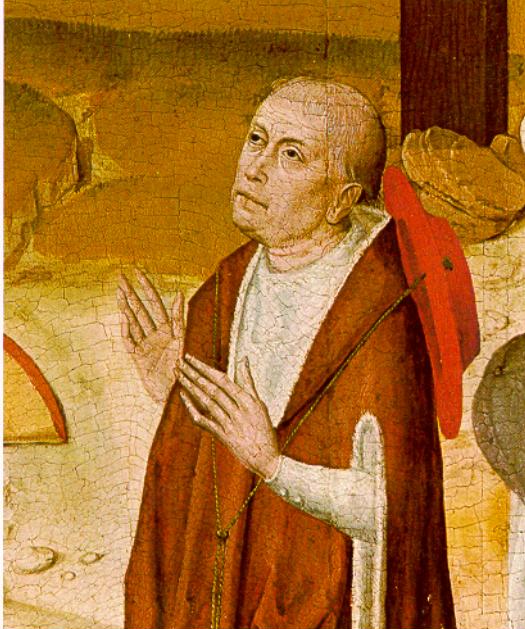Никола́й Куза́нский, Николай Кузанец, Кузанус, настоящее имя Николай Кребс — кардинал Римской католической церкви, крупнейший немецкий мыслитель XV века, философ, теолог, учёный-энциклопедист, математик, церковно-политический деятель. Принадлежит к первым немецким гуманистам в эпоху перехода от позднего Средневековья к раннему Новому времени.
Николай Кузанский сыграл большую роль в церковной политике, в особенности, в дебатах относительно церковной реформы. На Базельском соборе он первоначально поддерживал позицию концилиаристов, требовавших ограничения полномочий Папы. Однако впоследствии он перешёл на папскую сторону, которая в итоге и одержала верх. Обладая дипломатическими способностями, он умело продвигал интересы Папы и сделал блестящую карьеру кардинала, папского легата, князь-епископа Бриксенского и генерального викария Папской области. В Бриксене он столкнулся с сильным противодействием местной аристократии и властей, которому не смог противостоять.
Как философ Николай Кузанский стоял на позициях неоплатонизма, идеи которого он черпал как из античных, так из средневековых источников. Основой его философии являлась концепция соединения противоположностей в Едином, где разрешаются все видимые противоречия между несовместимыми. Метафизически и теологически он считал, что Бог есть Единое. В сфере теории государства и политики он также исповедовал идею единения. Самой важной целью он считал максимально широкое воплощение мира и согласия, невзирая на объективные различия во мнениях. В своей философии он развил необычное для своего времени представление о религиозной терпимости . Активно дискутируя об исламе, он признал за этой религией некоторую правдивость и право на существование.
Wikipedia
✵
1401 – 11. Август 1464
